
Robert Hart was one of those empire builders of the Victorian age who had a long and nearly uninterrupted experience in China, from 1854, when as a young Irishman from Belfast he landed in Ningpo, until 1908, when as a man in his seventies he finally retired to England. His years as the Ch’ing government’s Inspector General of the Maritime Customs Service have been copiously recorded in letters to his London agent, beginning in 1868, published as a 2-volume collection, The I. G. in Peking (Harvard, Belknap Press, 1975).
In 1970, a second lode of Hart materials came to light, the 77 volumes of his journals, begun on the day of his arrival in China in 1854 and ending at his departure in 1908, with two short but significant gaps in the first decade where he himself destroyed entries of too personal a nature.
Entering China’s Service presents a complete and annotated transcript of the surviving journals through 1863, alternating with chapters devoted to Hart’s North Ireland background, the China he encountered, the Ch’ing officials who trusted him, and the unfolding of his career. His reactions to the Chinese as well as to his fellow Westerners cast an invaluable light on nineteenth-century China.

Robert Hart’s forty-five-year administration of China’s customs service was a unique achievement. In these letters Hart speaks to us directly from a time long past in China, but a time that may seem only yesterday to a Western reader. The result is a primary source for the history of modern China and the era of foreign privilege there.
Bearing sole responsibility for the Chinese Maritime Customs as its Inspector General, Hart built up an international staff of thousands, facilitated foreign trade, gave the late-Ch’ing court its principal new revenues, and fostered China’s modernity in administration, schools, naval development, postal service, and many other lines. Behind the scenes Hart was also a diplomat who settled the Sino–French war, changed Macao’s status, got boundaries delimited with Burma and India, and mitigated the disasters of imperialism. His career at Peking, coinciding with that of the Empress Dowager Tz’u-hsi, represented the constructive side of the unequal treaty system and Victorian Britain’s informal empire in East Asia.
The publication of the great I. G.’s weekly or fortnightly letters to his confidant and London commissioner, James Duncan Campbell, gives us an intimate, inside view of Hart’s problems and methods. He appraises his employers in China’s foreign office, the Tsungli Yamen, and comments pithily on the complex flow of events and personalities. He quotes the Confucian Classic but, even more, the Latin poets. His personal life is revealed—standing long hours at his writing desk, finding solace in the violin, keeping his own counsel, constantly isolated by his responsibilities. Having no confidant in Peking, he explains himself to his loyal agent in London.
The Hart–Campbell letters, after five years’ editing and annotation and with an informed introduction by Hart’s final successor as foreign I. G., L. K. Little, thus take their place as one of the great historical treasures that bring a vanished era back to life.
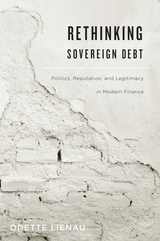
Conventional wisdom holds that all nations must repay debt. Regardless of the legitimacy of the regime that signs the contract, a country that fails to honor its loan obligations damages its reputation, inviting still greater problems down the road. Yet difficult dilemmas arise from this assumption. Should today's South Africa be responsible for apartheid-era debt? Is it reasonable to tether postwar Iraq with Saddam Hussein's excesses?
Rethinking Sovereign Debt is a probing historical analysis of how sovereign debt continuity--the rule that nations should repay loans even after a major regime change, or expect reputational consequences--became the consensus approach. Odette Lienau contends that the practice is not essential for functioning international capital markets, and demonstrates how it relies on ideas of absolutist government that have come under fire over the last century. Challenging previous accounts, Lienau incorporates a wealth of original research to argue that Soviet Russia's repudiation of Tsarist debt and Great Britain's 1923 arbitration with Costa Rica hint at the feasibility of selective debt cancellation. She traces the notion of debt continuity from the post-World War I era to the present, emphasizing the role of government officials, the World Bank, and private-market actors in shaping our existing framework.
Lienau calls on scholars and policymakers to recognize political choice and historical precedent in sovereign debt and reputation, in order to move beyond an impasse when a government is overthrown.
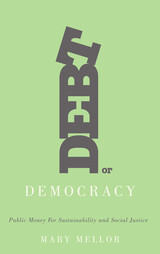
A direct challenge to conventional economic thinking, Debt or Democracy offers a bracing new analysis of our economic crisis and offers cogent, radical alternatives to create a more just and sustainable economic future.

“An engaging treatment of a topic of perennial concern and frequent misunderstanding, this lucid tale of the brief moment when the United States was debt-free should be on every Congress member’s bedside table.”—Peter J.Woolley, Professor of Comparative Politics, Fairleigh Dickinson University
When President James Monroe announced in his 1824 message to Congress that, barring an emergency, the large public debt inherited from the War for Independence, the Louisiana Purchase, and the War of 1812 would be extinguished on January 1, 1835, Congress responded by crafting legislation to transform that prediction into reality. Yet John Quincy Adams,Monroe’s successor, seemed not to share the commitment to debt freedom, resulting in the rise of opposition to his administration and his defeat for reelection in the bitter presidential campaign of 1828. The new president, Andrew Jackson, was thoroughly committed to debt freedom, and when it was achieved, it became the only time in American history when the country carried no national debt. In A Nation Wholly Free: The Elimination of the National Debt in the Age of Jackson, award-winning economic historian Carl Lane shows that the great and disparate issues that confronted Jackson, such as internal improvements, the “war” against the Second Bank of the United States, and the crisis surrounding South Carolina’s refusal to pay federal tariffs, become unified when debt freedom is understood as a core element of Jacksonian Democracy.
The era of debt freedom lasted only two years and ten months. As the government accumulated a surplus, a fully developed opposition party emerged—the beginning of our familiar two-party system—over rancor about how to allocate the newfound money. Not only did government move into an oppositional party system at this time, the debate about the size and role of government distinguished the parties in a pattern that has become familiar to Americans. The partisan debate over national debt and expenditures led to poorly thought out legislation, forcing the government to resume borrowing. As a result, after Jackson left office in 1837, the country fell into a major depression. Today we confront a debt that exceeds $17 trillion. Indeed, we have been borrowing ever since that brief time we freed ourselves from an oversized debt. A thoughtful, engaging account with strong relevance to today, A Nation Wholly Free is the fascinating story of an achievement that now seems fanciful.

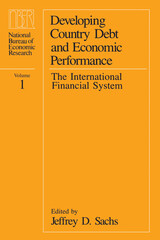
This project on developing country debt, undertaken by the National Bureau of Economic Research, provides a detailed analysis of the ongoing developing country debt crisis. The project focuses on the middle-income developing countries, particularly those in Latin America and East Asia, although many lessons of the study should apply as well to other, poorer debtor countries. The project analyzes the crisis from two perspectives, that of the international financial system as a whole (volume 1) and that of individual debtor countries (volumes 2 and 3).
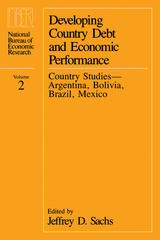
This project on developing country debt, undertaken by the National Bureau of Economic Research, provides a detailed analysis of the ongoing developing country debt crisis. The project focuses on the middle-income developing countries, particularly those in Latin America and East Asia, although many lessons of the study should apply as well to other, poorer debtor countries. The project analyzes the crisis from two perspectives, that of the international financial system as a whole (volume 1) and that of individual debtor countries (volumes 2 and 3).
This second volume contains lengthy and detailed case studies of four Latin American nations—Argentina, Bolivia, Brazil, and Mexico—providing a wealth of comparative data and new statistics on the general economic development of each nation. The authors explore the various factors that contributed to the debt crisis in each country and analyze how the crisis was managed once it had taken hold. Trenchant economic analyses are enchanced by assessments of the stark political realities behind the policy choices facing each nation.
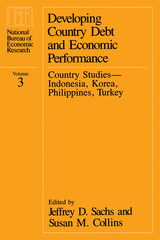
This project on developing country debt, undertaken by the National Bureau of Economic Research, provides a detailed analysis of the ongoing developing country debt crisis. The project focuses on the middle-income developing countries, particularly those in Latin America and East Asia, although many lessons of the study should apply as well to other, poorer debtor countries. The project analyzes the crisis from two perspectives, that of the international financial system as a whole (volume 1) and that of individual debtor countries (volumes 2 and 3).
This third volume contains lengthy and detailed case studies of four very different Asian countries—Turkey, Indonesia, Korea, and the Philippines.
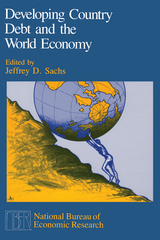
Developing Country Debt and the World Economy contains nontechnical versions of papers prepared under the auspices of the project on developing country debt, sponsored by the National Bureau of Economic Research. The project focuses on the middle-income developing countries, particularly those in Latin America and East Asia, although many lessons of the study should apply as well to other, poorer debtor countries. The contributors analyze the crisis from two perspectives, that of the international financial system as a whole and that of individual debtor countries.
Studies of eight countries—Argentina, Bolivia, Brazil, Indonesia, Mexico, the Philippines, South Korea, and Turkey—explore the question of why some countries succumbed to serious financial crises while other did not. Each study was prepared by a team of two authors—a U.S.-based research and an economist from the country under study. An additional eight papers approach the problem of developing country debt from a global or "systemic" perspective. The topics they cover include the history of international sovereign lending and previous debt crises, the political factors that contribute to poor economic policies in many debtor nations, the role of commercial banks and the International Monetary Fund during the current crisis, the links between debt in developing countries and economic policies in the industrialized nations, and possible new approaches to the global management of the crisis.

In a time when citizens are deeply dissatisfied with the basic institutions and elected officials that govern them, the participatory budgeting movement empowers citizens to get results for pressing community needs. It creates a transparent process where citizens can propose projects through traditional community meetings or use civic technologies to provide input online, work with elected officials to craft budget proposals, and vote on where and how to spend public funds. Unlike other forms of civic engagement, participatory budgeting involves spending real public money on the priorities that the community identifies.
In this brief work, Hollie Russon Gilman explains the history and concepts of participatory budgeting. First used abroad, participatory budgeting has been piloted in Chicago, New York City, Boston, and several other cities across the United States since 2009. She relates participatory budgeting to other forms of civic innovation and proposes ways for new digital tools to increase entry points for civic engagement. This brief and accessible work is an ideal introduction to participatory budgeting for students, scholars, and practitioners.
Georgetown Digital Shorts—longer than an article, shorter than a book—deliver timely works of peer-reviewed scholarship for a fast-paced world. They present new ideas and original content that are easily digestible for students, scholars, and general readers.

In this passionate and deeply researched book, Destin Jenkins shows in vivid detail how, beyond the borrowing decisions of American cities and beneath their quotidian infrastructure, there lurks a world of politics and finance that is rarely seen, let alone understood. Focusing on San Francisco, The Bonds of Inequality offers a singular view of the postwar city, one where the dynamics that drove its creation encompassed not only local politicians but also banks, credit rating firms, insurance companies, and the national municipal bond market. Moving between the local and the national, The Bonds of Inequality uncovers how racial inequalities in San Francisco were intrinsically tied to municipal finance arrangements and how these arrangements were central in determining the distribution of resources in the city. By homing in on financing and its imperatives, Jenkins boldly rewrites the history of modern American cities, revealing the hidden strings that bind debt and power, race and inequity, democracy and capitalism.

Managing the Fiscal Metropolis: The Financial Policies, Practices, and Health of Suburban Municipalities is an important book. This first comprehensive analysis of the financial condition, management, and policy making of local governments in a metropolitan region offers local governments currently dealing with the Great Recession a better understanding of what affects them financially and how to operate with less revenue.
Hendrick’s groundbreaking study covers 264 Chicago suburban municipalities from the late 1990s to the present. In it she identifies and describes the primary factors and events that affect municipal financial decisions and financial conditions, explores the strategies these governments use to manage financial conditions and solve financial problems, and looks at the impact of contextual factors and stresses on government financial decisions. Managing the Fiscal Metropolis offers new evidence about the role of contextual factors— including other local governments—in the financial condition of municipalities and how municipal financial decisions and practices alter these effects. The wide economic and social diversity of the municipalities studied make its findings relevant on a national scale.

When the 2011 municipal takeover in Flint, Michigan placed the city under state control, some supported the intervention while others saw it as an affront to democracy. Still others were ambivalent about what was supposed to be a temporary disruption. However, the city’s fiscal emergency soon became a public health emergency—the Flint Water Crisis—that captured international attention.
But how did Flint’s municipal takeovers, which suspended local representational government, alter the local political system? In Power, Participation, and Protest in Flint, Michigan, Ashley Nickels addresses the ways residents, groups, and organizations were able to participate politically—or not—during the city’s municipal takeovers in 2002 and 2011. She explains how new politics were created as organizations developed, new coalitions emerged and evolved, and people’s understanding of municipal takeovers changed.
Inwalking readers through the policy history of, implementation of, and reaction to Flint’s two municipal takeovers, Nickels highlights how the ostensibly apolitical policy is, in fact, highly political.


In 23 B.C., when he published the first three books of his lyrics, Horace was 42 years old, secure in the favor of the emperor Augustus, and living in ease and comfort as a country gentleman on his Sabine farm. Serenity is reflected in these lyrics, certainly, but so are other experiences, for Horace had lived through three major political crises in a society that was the center of the world, that was sophisticated, refined—and beginning to decay. A worldly, high-spirited, cultivated man, Horace responds in his poetry to the myriad elements of Roman life he knew so well.
The Odes and Epodes of Horace collects the entirety of his lyric poetry, comprising all 103 odes, the Carmen Saeculare ("Festival Hymn"), and the earlier epodes. Joseph P. Clancy has achieved a mirroring of the originals that is worthy in its own right as English verse, and his introductions to each book of lyrics are both lively and informed.

Not surprisingly in view of the country's great size, vast regional differences, and cultural diversity, local government in Indonesia is on a massive scale. The task of managing and financing a system of local government is a troublesome one; the development needs of different regions are vast and the tasks facing local government are generally far beyond their limited resources. It is the purpose of this book not only to describe the existing system of local government but also to analyze it, identify weaknesses and problems with the present arrangement, and to propose realistic lines of reform. This collection of essays will provide a useful and constructive contribution to the discussion of issues central to the system of local government in Indonesia.
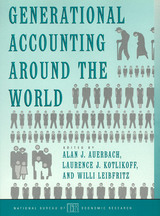
Combining the latest and most extensive country-by-country generational analyses with a comprehensive review of generational accounting's innovative methodology, these papers are a consummate resource for economists, political scientists, and policy makers concerned with fiscal health and responsibility.


Drawing on never-before seen archival documents, Prasad traces the history of the 1981 tax cut—the famous “supply side” tax cut, which became the cornerstone for the next several decades of Republican domestic economic policy. She demonstrates that the main impetus behind this tax cut was not business group pressure, racial animus, or a belief that tax cuts would pay for themselves.
Rather, the tax cut emerged because in America--unlike in the rest of the advanced industrial world—progressive policies are not embedded within a larger political economy that is favorable to business. Since the end of World War II, many European nations have combined strong social protections with policies to stimulate economic growth such as lower taxes on capital and less regulation on businesses than in the United State. Meanwhile, the United States emerged from World War II with high taxes on capital and some of the strongest regulations on business in the advanced industrial world. This adversarial political economy could not survive the economic crisis of the 1970s.
Starving the Beast suggests that taking inspiration from the European model of progressive policies embedded in market-promoting political economy could serve to build an American economy that works better for all.


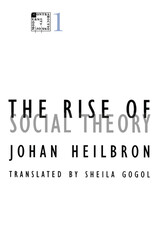
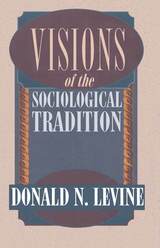
"Visions" has three meanings, each of which corresponds to a part of the book. In Part 1, Levine presents the ways previous sociologists have rendered accounts of their discipline, as a series of narratives—or "life stories"—that build upon each other, generation to generation, a succession of efforts to envisage a coherent past for the sake of a purposive present.
In Part 2, the heart of the book, Levine offers his own narrative, reconnecting centuries of voices into a richly textured dialogue among the varied strands of the sociological tradition: Hellenic, British, French, German, Marxian, Italian, and American. Here, in a tour de force of clarity and conciseness, he tracks the formation of the sociological imagination through a series of conversations across generations. From classic philosophy to pragmatism, Aristotle to W. I. Thomas, Levine maps the web of visionary statements—confrontations and oppositions—from which social science has grown.
At the same time, this is much more than an expert synthesis of social theory. Throughout each stage, Levine demonstrates social knowledge has grown in response to three recurring questions: How shall we live? What makes humans moral creatures? How do we understand the world? He anchors the creation of social knowledge to ethical foundations, and shows for the first time how differences in those foundations disposed the shapers of modern social science—among them, Marshall and Spencer, Comte and Durkheim, Simmel and Weber, Marx and Mosca, Dewey and Park—to proceed in vastly different ways.
In Part 3, Levine offers a vision of the contemporary scene, setting the crisis of fragmentation in social sciences against the fragmentation of experience and community. By reconstructing the history of social thought as a series of fundamentally moral engagements with common themes, he suggests new uses for sociology's intellectual resources: not only as insight about the nature of modernity, but also as a model of mutually respectful communication in an increasingly fractious world.

This biographical study of one of China's leading social scientists follows his history from birth until the present moment, and includes a bibliography of his books and articles. Trained in London under Malinowski, Fei Xiaotong achieved eminence in the 1930s and 1940s for his pioneering studies of Chinese peasant life and for his popular articles, which stirred a wide audience in China to an awareness of social and political problems. A non-Marxist who came to sympathize with the Communists, Fei was gradually constrained in his activities after the Revolution until, in the 1950s, a massive propaganda campaign vilified him as a bourgeois rightist intellectual. Almost twenty years of silence and disgrace followed. Only recently, following the death of Mao, has Fei suddenly reemerged as a leader in the effort to revitalize the social sciences in China.
The story of Fei's life told here is, in a sense, the story of Westernized intellectuals in China at a time of peasant revolution. His writings enunciate the views of a sensitive observer of Chinese and Western society during that period of dramatic change.

American reception of his works, however, has lacked a full understanding of their place within the broad context of French human science. His individual works separated by distinct boundaries between social science fields in American academia, Bourdieu's cohesive thought has come to this country in fragments.
Bourdieu: Critical Perspectives provides a unified and balanced appraisal of Bourdieu's varied works by both proponents and skeptics. The essays are written from the varied viewpoints of cultural anthropology, ethnomethodology and other varieties of sociology, existential and Wittgensteinian philosophies, linguistics, media studies, and feminism. They work around three main themes: Bourdieu's effort to transcend gaps between practical knowledge and universal structures, his central concept of "reflexivity," and the relations between social structure, systems of classification, and language.
Ultimately, the contributors raise a variety of crucial theoretical questions and address problems that are important not only to understanding Bourdieu but to advancing empirical work of the kind he has pioneered. In an essay written especially for this volume, Bourdieu describes his own "mode of intellectual production" and the reasons he sees for its common misunderstanding.
The contributors are Hubert Dreyfus, Paul Rabinow, Charles Taylor, Aaron Cicourel, James Collins, William Hanks, Beate Krais, Nicholas Garnham, Scott Lash, Roger Brubaker, and Loic Wacquant, and the editors.

The first two selections of the volume set the context for the development of Durkheim's sociology of morality. Section I, "The French Tradition of Social Thought," gives Durkheim's picture of how his sociology is to be situated relative to the general French tradition. Section II, "Sociology and Social Action," shows Durkheim grappling with moral and political issues in his society and indicates the immediate social context of his thinking.
The remaining selections indicate some of the major substantive areas of Durkheim's sociology of morality. Section III, taken from The Division of Labor in Society, demonstrates his basically evolutionary approach to the development of moral norms in society. Section IV, "The Learning of Morality," gives examples of Durkheim's work on socialization. Section V, "Social Creativity," deals with the important question of how new moral norms arise in society.


Theodor W. Adorno (1903-1969) was a leading figure in the Frankfurt School and one of this century's most demanding intellectuals. His works, always informed by his variant of Critical Theory that he called Negative Dialectics, is notoriously difficult to understand bu has had an enormous impact on philosophy, sociology, musicology, literary criticism, psychology, and the study of culture.
In an introductory section, Martin Jay gives a brief, lucid account of Adorno's notion of force-field, and of Adorno's extension of Walter Benjamin's concept of constellation. He distinguishes five impulses in Adorno's thinking: his Marxism, his aesthetic modernism, his mandarin cultural conservatism, his anticipation of deconstructionism, and the self-conscious Jewishness that led him to look for redemption and at the same time to refuse any definition of paradise.
Professor Jay devotes the central sections of his book to the major aspects of Adorno's thought--his philosophy, his social theory, and his view of modern culture and aesthetic theory. He has succeeded brilliantly in the task of presenting Adorno's theories in understandable form while remaining true to their unresolved tensions.

Käsler offers a comprehensive account of Weber's views, giving attention both to the context in which Weber produced his most significant contributions to social science, and to the changes involved in his work over the course of his career. This volume also serves as an introduction to the controversies that Weber's writings have stimulated, from the time of their first appearance to the present day.
This book will be of vital interest to anyone concerned with Max Weber and will undoubtedly become the leading student text on Weber in the English-speaking world.
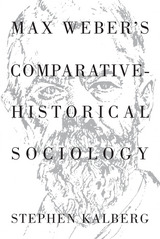
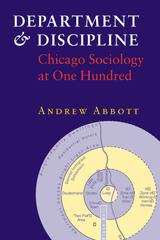
Abbott analyzes the shifts in social scientific inquiry and discloses the intellectual rivalry and faculty politics that characterized different stages of the Chicago School. Along the way, he traces the rich history of the discipline's main journal, the American Journal of Sociology.
Embedded in this analysis of the school and its practices is a broader theoretical argument, which Abbott uses to redefine social objects as a sequence of interconnected events rather than as fixed entities. Abbott's theories grow directly out of the Chicago School's insistence that social life be located in time and place, a tradition that has been at the heart of the school since its founding one hundred years ago.

In order to bring sociology to the recognition of a social world of contingencies and of an obdurate but protean reality that changes shapes as humans define it, Stanford Lyman re-introduces the concept of “civilization,” employing it as both an intellectual resource and a proper topic for sociological investigations.
The fifteen essays in this collection by one of America’s premier sociologists reflect Lyman’s concern with all that is meant by the term civilization. Primarily inspired by his attempts to synthesize the ideas of Erving Goffman, Émile Durkheim, Max Weber, Herbert Blumer, and other social thinkers, the essays reflect the author’s abiding interest in the structures and the processes attending race relations, minority communities, and the constitution of the social self.
1991 Mid-South Sociological Association Book Award
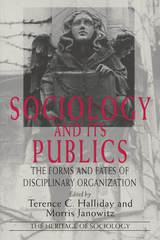

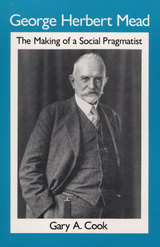

1993 Mid-South Sociological Association Book Award
Robert E. Park has long been recognized as one of the most influential thinkers in early American sociology, yet virtually all of his works appearing before 1913 were published in popular magazines and were dismissed as nonsociological muckraking. In Militarism, Imperialism, and Racial Accommodation: An Analysis and Interpretation of the Early Writings of Robert E. Park, Stanford M. Lyman examines and reprints many of these little-known works, including Park’s essays on German military organization, his exposés of the atrocities committed by Belgium’s Leopold II in the Congo State, his studies of the black community in Winston-Salem, North Carolina, and of Booker T. Washington’s agricultural education program at Tuskegee, Alabama.
Lyman shows clearly that Park’s essays, written outside the academy, formulated a far more complex perspective on modern modes of evil than any proposed by his contemporaries, thereby influencing sociological debates for decades to come. By writing his essays on topical subjects and by publishing them for a public audience, Park dramatized his profound belief that the struggle to achieve racial accommodation and to establish a true and lasting democracy is a concern for all.
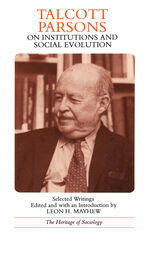
In his extensive introduction to this volume, Leon H. Mayhew brings a new focus and clarity to Talcott Parsons's work. Explicating Parsons on his own terms, Mayhew discusses the basic tools of Parsonian analysis and interprets the larger themes of his work. He provides a chronological account of the development of Parsons's thought, his presuppositions, and his position on the ideological spectrum of social thought.
Mayhew then presents twenty of Parsons's essays, touching on each of the major aspects of his work, including "action" theory and the celebrated four-function scheme. Other topics covered include the role of theory in social research, evolutionary universals in society, influence, control, and the mass media.
"Talcott Parsons on Institutions and Social Evolution will become a standard reference for those studying that development of his sociological ideas."—Martin Bulmer, The Times Higher Education Supplement

READERS
Browse our collection.
PUBLISHERS
See BiblioVault's publisher services.
STUDENT SERVICES
Files for college accessibility offices.
UChicago Accessibility Resources
home | accessibility | search | about | contact us
BiblioVault ® 2001 - 2024
The University of Chicago Press









